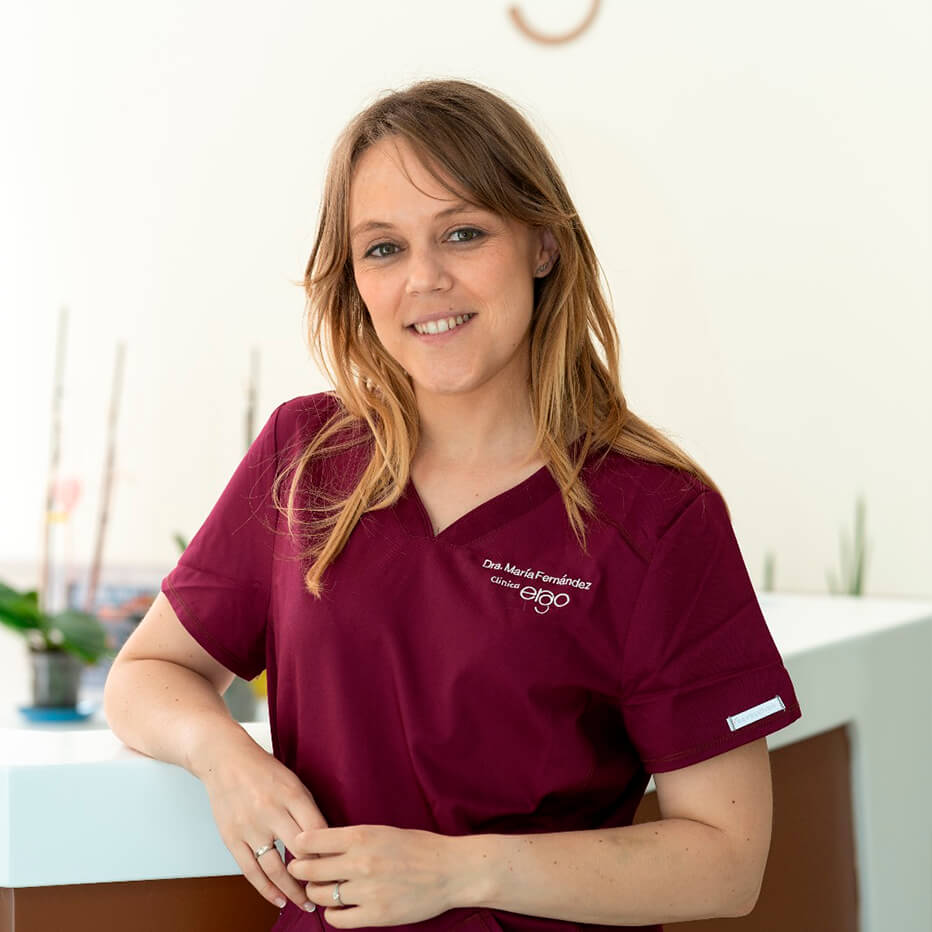Advanced Fertility Study
The most complete studyFertility studies in Gijón, Asturias
When to perform the ADVANCED fertility study
If you have been trying to get pregnant for more than 6 months, have a suspected underlying pathology, have had a miscarriage or have already undergone unsuccessful assisted reproduction techniques, it is time to look for more specific answers.
Why do specific tests?
Because sometimes it’s not so easy to know what’s going on. Becoming pregnant and having a healthy child is a complex process, and there are thousands of things that can go wrong. For this reason, we propose a much more directed study, looking for causes that may not be so obvious but that can be diagnosed and in many cases can be solved.
Know the status of your reproductive health
Studies for women and men
We finance 100% of your studies
ADVANCED tests for women
Ultrasound and RFA
This ultrasound will be performed between the 1st and 4th day of your cycle, to see ultrasonographically the morphology of the uterus and ovaries, but especially the antral follicle count, which will give us an idea of your ovarian reserve. That is the right time to do this test, outside those times of your menstrual cycle it is not useful.
Hormone and antimüllerian study
On the same day of your visit for the gynecological ultrasound, a blood test is performed to assess ovarian and pituitary function. We analyze the most influential hormones such as FSH, LH, Estradiol, LH, prolactin and TSH. But the key molecule is the anti-Müllerian hormone, which by means of a specific value will indicate your ovarian reserve.
Hysterosalpingography
It is necessary to know if your tubes allow the passage of sperm, since the tubal cause is one of the most common reasons for not achieving pregnancy. In addition, this diagnostic imaging test also allows us to assess the uterine cavity for possible morphological alterations compatible with implantation failure or miscarriage. It is performed after the end of the period but before ovulation (approximately between days 5 and 10 of the cycle) and our ExemFoam technique allows it to be done in a completely painless way.
Biochemistry, blood count and vitamins
A good pregnancy will take place in a good state of health. Therefore, a general study of biochemistry, hemogram and vitamins will indicate any possible deficit whose solution will allow us to improve the systemic conditions before your pregnancy. Among the key tests in this study is vitamin D, so important for achieving pregnancy.
Karyotype
Simple blood test in which the number of chromosomes and their position are evaluated; its incidence of alteration is low, but it does explain non-implantations or repeated abortions due to increased probabilities of genetic alteration in the embryos.
Genetic study of coagulation
You have probably heard that one of the most common causes of non-pregnancy or repeated miscarriages is having a clotting problem. This is of importance in the case of women, as it is involved in implantation and the early stages of pregnancy. Our advanced fertility study includes a genetic study of coagulation with indication of anticoagulant or not on a patient-specific basis.
ADVANCED Tests for males
A very erroneous phrase is to say “if he has any sperm, he is not the problem”. Fertility is more complex, and half of the embryo that is generated will be thanks to the sperm, so it is more than justified to make a good study of the male gamete.
Seminogram
The beginning of any seminal study is a seminogram. We evaluate such key parameters as ejaculate volume, sperm count and sperm motility.
Sperm morphology
Although the WHO considers a normal semen analysis as having at least 4% of spermatozoa with normal shape, its evaluation may lead to suspicion of causes of repeated miscarriages or impossibility of natural fertilization.
Training test (REM)
It is a complementary study to the seminogram, which consists of processing the sample by eliminating the seminal plasma and selecting the spermatozoa with the best motility by means of discontinuous density gradients or SwimUp. Once the sample has been prepared, the final suspension obtained has the best quality spermatozoa to carry out the fertilization of the egg, thus being able to know its in vitro behavior.
Karyotype
Simple blood test in which the number of chromosomes and their position are evaluated; its incidence of alteration is low, but it does explain non-implantations or repeated abortions due to increased probabilities of genetic alteration in the embryos.
Sperm maturity
Spermatozoa take about 64 days to form, a process that not only consists of acquiring the characteristic shape of this cell, but also requires a protein modification around the DNA it contains. The maturity test assesses this change, which can be key to fertilization rates, embryo quality and blastocyst arrival rate.
Sperm DNA fragmentation
With a semen sample we can determine if the sperm DNA is fragmented; and also distinguish between single and double stranded fragmentation. If this occurs, it serves as a cause of non-pregnant embryos, fragmented embryos or poor embryo quality. And in many cases it is possible to improve these data prior to performing in vitro fertilization.
Sperm aneuploidies
The sperm must provide 23 chromosomes to the embryo; if it provides more or less, the embryo will carry chromosomal alterations and therefore will not implant or will miscarry. If this occurs, we can test the embryos prior to implantation.
Are there other diagnostic tests?
There are a multitude of tests that can be useful in specific cases, but they are not routinely performed on all patients. These tests, which we call complementary, are requested after the first interview due to suspicion of a specific pathology or are requested to clarify the results of the basic tests.
EMMA bacteria test
One of the possible causes of embryo non-implantation or repeated miscarriages may be the presence of pathogenic bacteria in the endometrium, or even low favorable biomass. Once detected, it can be corrected with the correct antibiotic and subsequent probiotic treatment.
ERA implementation window study
If you have had an embryo transfer and the result was negative or you have had a biochemical miscarriage, perhaps the timing of the transfer was not right. We can pinpoint it, know exactly how many hours (yes, hours) of progesterone you need for your implantation window to be at its optimum.
EndomeTRIO Study
It is the most complete molecular endometrial study that exists, assessing in a single analysis the window of implantation, pathogenic bacteria and biomass of your endometrium, thus finding the causes of non-implantation or repeated miscarriages, and best of all, it is repairable.
Carrier genetic testing
The possible genetic mutations that a person has, associated with recessive diseases, are analyzed. It is indicated when there are family suspicions of major diseases or when the couple wants to minimize the risks of inheritable genetic diseases in the offspring.
KIR/HLA-C immunological study
By means of a blood test, the KIR / HLA-C type of a woman and the HLA-C of her male partner are evaluated in order to find the most favorable combination for an evolving pregnancy. It is also applicable to the use of egg or sperm donors.
Need more information?
We are a team of more than 15 professionals specialized in assisted reproduction and women’s health. Do you have any doubts? We invite you to meet us, your first visit is totally FREE.

